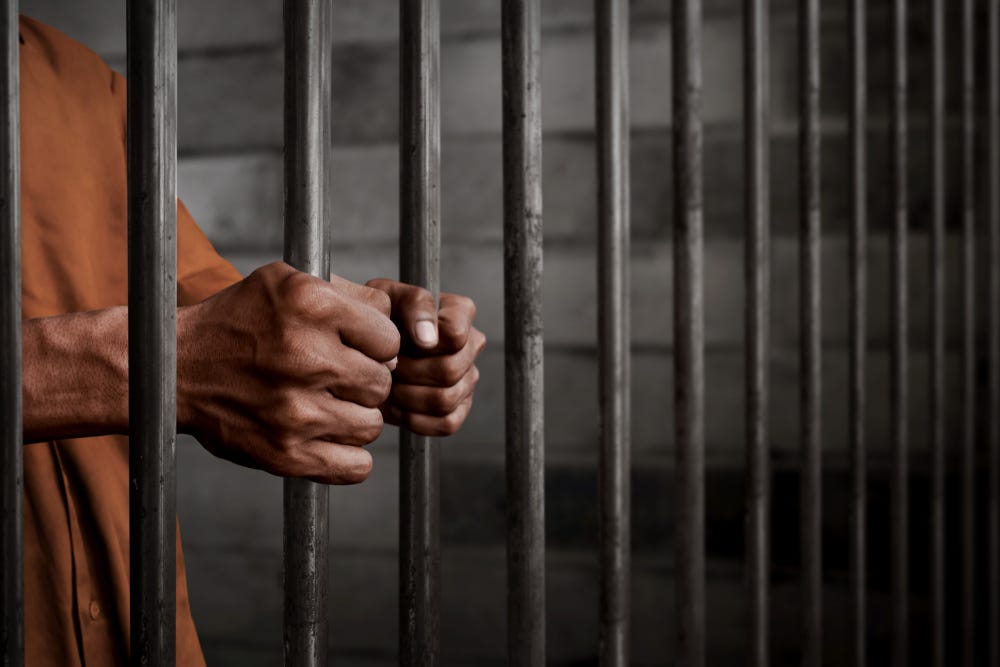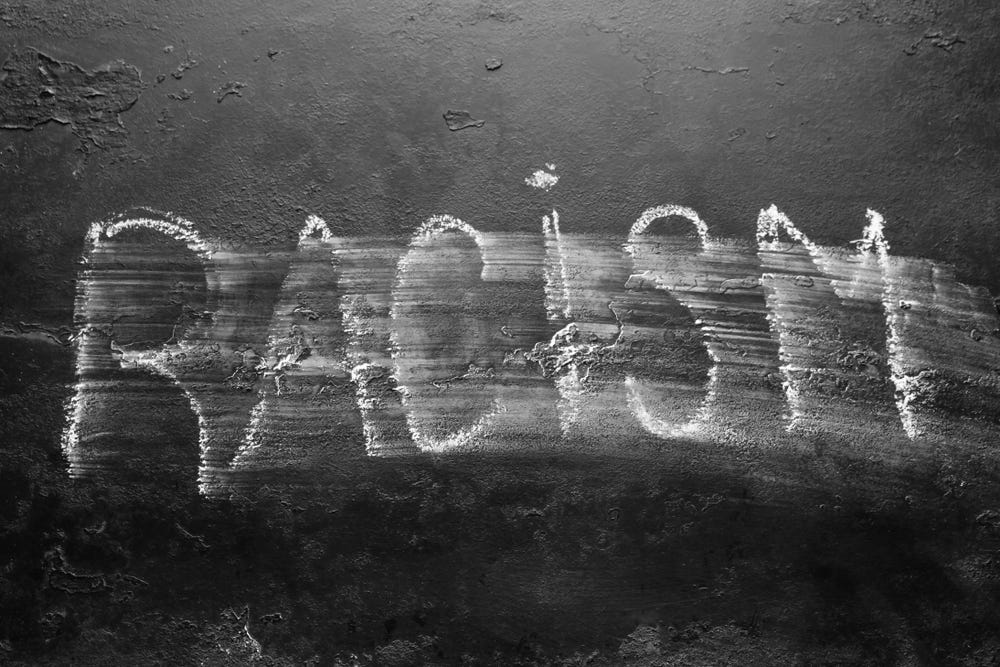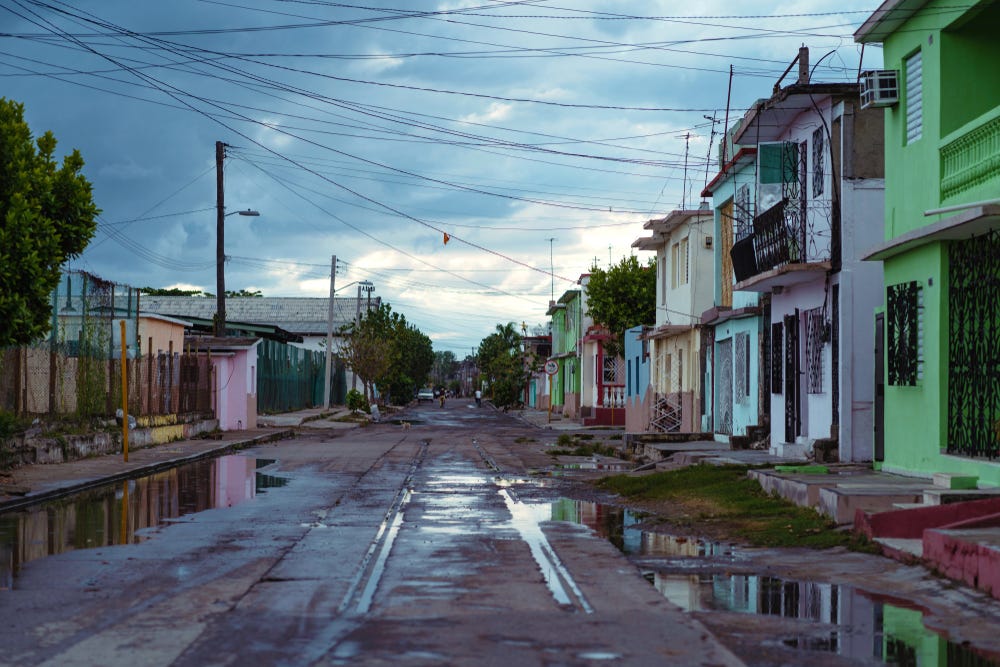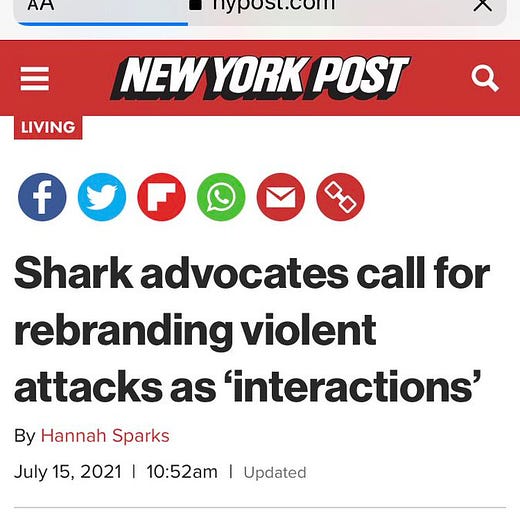E-Pluribus | July 15, 2021
Checking our impulse toward punitive behavior, how Critical Race Theory led to Kendi and DiAngelo, and the language of totalitarian dehumanization.
A round up of the latest and best writing and musings on the rise of illiberalism in the public discourse:
Jesse Singal: Humans Have Deep-Seated, Deranged Impulses Toward Punitive Behavior That Civilization Needs To Keep In Check
Yesterday, we featured a piece by David French on a recent legal challenge brought by a florist who was being sued by the state of Washington who cited religious objection to making an arrangement for a long-time customer’s wedding. To French, the state of Washington’s actions were nothing more than an act of pure state punishment rather than an attempt to get justice for the same-sex couple who did not buy flowers from her. At Singal-Minded, Jesse Singal examines the case of Hervis Rogers, a parolee who had unknowingly voted illegally in the state of Texas and how the state’s Republican attorney general (Ken Paxton) is trying to make an example of Rogers for what appears to be purely punitive and political reasons. Singal reflects on how our tribalism and illiberal impulses often trump basic human decency:
I’m really over the idea that one tribe or the other has any sort of monopoly on ‘illiberalism’ or is more likely to ‘cancel’ their opponents or is “sliding into authoritarianism” in some unprecedented way. I think this is a very, very deep-seated human tendency and the more we can promote the idea that it is universal and can pop up anywhere, the better able we’ll be to protect ourselves and others from it.
That’s not to say all instances of the punitive impulse cause the same amount of harm. When a university spends hundreds of thousands of dollars and about nine months ‘investigating’ a professor for briefly protesting a white fragility training, barring her from teaching and hysterically denouncing her to the entire community in the meantime, that’s bad, of course, and a sign of what I’m talking about. But it’s nowhere near as bad as, say, harsh marijuana laws that have led to countless ruined lives over practically nothing. I don’t want to fall into false equivalencies.
But the point is that just about every tribe, in some circumstances, will launch inquisitions or enact punishments that, to most nonmembers of that tribe, come across as profoundly misguided and unfair. The ‘why’ underlying this behavior depends. Sometimes it’s moral hysteria, sometimes, as in the case of Paxton, raw political opportunism married to a borderline-psychopathic understanding of other humans as objects, basically, to use for achieving one’s own ends (no, I’m not being harsh on Paxton — I’m describing his behavior accurately).
I’d just like this issue to be depoliticized. That doesn’t mean that in a case like Paxton’s we can’t put it in the broader context of endless GOP scaremongering among “voter fraud,” or that we can’t make (accurate, rigorous) statements about moral failings specific to one tribe or another. I write and talk a lot about the social-justice moral panics setting in in some liberal institutions, particularly journalistic and academic ones, because I do think there’s a bad trajectory there (and that it causes crazy, harmful events like the aforementioned ‘investigation’ of a professor guilty only of disagreement). Bad left-of-center behavior also usually gets less mainstream media attention, overall, whereas behavior like Paxton’s will always attract a great deal of coverage.
But at this point we are familiar enough about humans to know that we all have, within us, the capacity to seek punishment in deranged, unfair ways.
Read the full piece here.
Aaron Sibarium: How Critical Race Theory Led to Kendi
The current debate over teaching Critical Race Theory (CRT) in schools is muddied by the lack of an operationalized definition of what we mean by CRT, an academic framework that has its roots in law schools. For many on the right, CRT has also used to describe a basket of more popularized “antiracism” trainings and corporate diversity initiatives promoted by authors Ibram X. Kendi and Robin DiAngelo. Opponents of bills banning CRT in schools say argue that CRT is not and will not be taught in K-12 schools and that CRT is not actually the same as these antiracist diversity trainings. But at the Washington Free Beacon, Aaron Sibarium traces a connection between CRT legal theorists like Charles Lawrence and antiracism advocates like Kendi.
The critical race theorists thus urged courts to adopt a more outcome-oriented approach to civil rights. "Institutions or practices oppressive in their effects," [David] Freeman wrote, should have to "justify themselves as legitimate." He pointed to Griggs v. Duke Power Co. as a rare example of the Supreme Court taking that approach. In Griggs, the court forbade employers from using intelligence tests that disproportionately disqualified black applicants, unless the tests were "significantly related" to job performance.
This argument assumed that the lion's share of racial disparities were rooted in racism, a position only slightly more moderate than Kendi's. "When I see racial disparities, I see racism," Kendi told the New York Times in 2018. And at a 2020 gathering for early childhood advocates, he stated that "the outcome of … policies" is "all that is relevant" when assessing them. Because "Black and Latinx children routinely get lower scores" on the SAT, Kendi has said, there must be "something wrong with the test."
[ . . . ]
For CRT, the cure was to censor words, ideas, and images that perpetuated racist attitudes, something Kendi has also proposed. Lawrence claimed Brown v. Board provided a warrant for such censorship. Chief Justice Earl Warren had held that segregation was unconstitutional because it stigmatized black students, "generat[ing] a feeling of inferiority as to their status." In other words, Lawrence argued, "Brown held that segregated schools were unconstitutional primarily because of the message segregation conveys." It could therefore "be read as regulating the content of racist speech." Kendi, who has argued for a constitutional amendment banning "racist ideas," would find much utility in such a reading.
Some critical race theorists went so far as to conflate speech with violence, an idea that is also seeping into K-12 education. In December, Seattle Public Schools held a training for teachers that accused educators of committing "spirit murder" against black children. The term comes from the critical race theorist Patricia Williams, who argued that small, subtle acts of racism were "as psychically obliterating as robbery or assault." Spirit murder, she said, ought to be considered a "capital moral offense." Another critical race theorist, Richard Delgado, argued that the "psychological harm" of racial insults entitled their targets to monetary recompense.
Read it all.
Clifton Ross: The Language of Totalitarian Dehumanization
While we concern ourselves with illiberal and authoritarian threats at home, the current protests in Cuba are a sobering reminder of the lasting toll of pure totalitarianism. This does not mean we should ignore illiberal impulses here, but we should recognize where these proclivities can eventually lead. At Quillette, Clifton Ross, a former pro-Cuban communist, reflects on his visit to Cuba and his eye-opening, first-hand experience with despotism.
It was January 1st, 1994, that I took my first trip to Cuba as part of Mexican tour. I was the only gringo. On my first day there, a furtive encounter in a hallway alcove of the hotel in which we were staying changed everything. One of the maids spotted me alone and called me aside. Looking around to ensure no one was listening, she whispered, “You’re from the USA, right?” I nodded. She smiled and handed me a napkin on which she’d written a name and a telephone number. “Please call my sister when you return,” she whispered. “Tell her I’m okay and that I’ll be coming as soon as I can.” I must have looked perplexed because she elaborated: “We have no way of getting in contact with family in the US.” She asked me to promise I’d do as she asked, and when I did, she thanked me and hurried away.
This gusano wasn’t the monstrous counter-revolutionary imagined by regime propaganda; she was a kind and frightened person moved by desperation to ask a complete stranger for a simple favor that might have landed her in serious trouble had I betrayed her. Here was a degree of intimacy to which I wasn’t accustomed. Western tourists in the developing world rarely manage to understand the deepest concerns of the people they meet, most of whom are preoccupied with finding ways to part us with our money: the porters, waiters, salespersons, guides, street vendors, those trapped in the “informal economy.” Yet here was someone with no ulterior motive beseeching me to help her contact a member of her family. In this instance, there was no sob story and no grift—just a person risking everything to give me her trust.
How did she know she could trust me? Notwithstanding my sympathy for Castroism at the time, she intuited that I would be receptive to her plea. Cubans have developed a peculiar sixth sense about tourists. Usually, they will employ this ability to leverage some cash. A lapse in judgment can result in a visit from the police, so it’s a skill they’ve had to hone in the name of survival. They certainly can’t depend on their wages or ration cards. Cynical? Of course. But the necessity and poverty bred by communism are among the most effective teachers of free-market capitalism available and Cubans have had to be quick studies.
Over the course of that first week of 1994, I met many Cubans on the street with postcards or contraband they’d stolen from their workplaces trying to make a little money from tourists. Or doctors whose monthly wage amounted to less than $50 driving taxis to make enough money to feed their families. And each time one of these people confided in me—invariably in a low murmur for fear of vigilant eyes and ears—about the horrors of life under the regime, I felt humbled. And ashamed. How could I have supported this despotism for so long? And yet, still I agonized about whether to keep my promise to the hotel maid.
Read the full piece at Quillette.
Around Twitter
The American Booksellers Association laments a recent act of violence . . . mailing a book to its members:
Is the answer to racism, sexism, etc. in the workplace just civil rights law?












